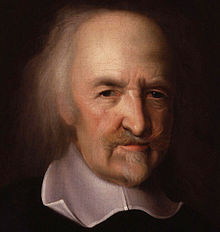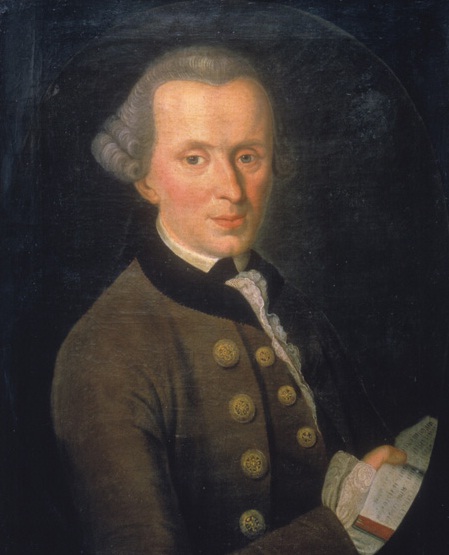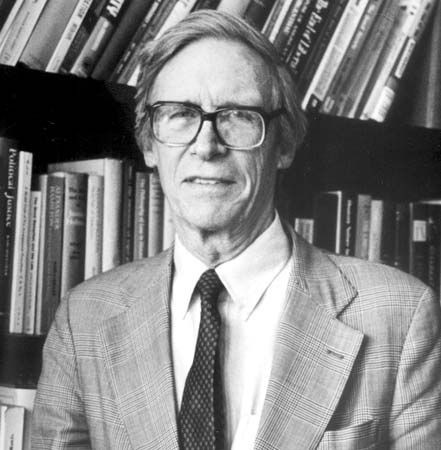The Contractarians
Thomas Hobbes

The English philosopher Thomas Hobbes (1588-1679) is best known for his political thought, and deservedly so. His vision of the world is strikingly original and still relevant to contemporary politics. His main concern is the problem of social and political order: how human beings can live together in peace and avoid the danger and fear of civil conflict. He poses stark alternatives: we should give our obedience to an unaccountable sovereign (a person or group empowered to decide every social and political issue). Otherwise what awaits us is a “state of nature” that closely resembles civil war – a situation of universal insecurity, where all have reason to fear violent death and where rewarding human cooperation is all but impossible.
Decades after completing his traditional education as a classicist at Oxford and serving as tutor of William Cavendish, Thomas Hobbes became convinced that the methods employed by mathematicians and scientists—geometry, in particular—hold the greatest promise for advances in human knowledge. Voluntarily exiled to Holland during the years of Parliamentary Rule, the royalist Hobbes devoted much of his time to the development and expression of a comprehensive philosophical vision of the mechanistic operation of nature. Although he returned to England with the restoration of Charles II, Hobbes was for the remainder of his life embroiled in bitter political and religious controversies. They did not prevent the ninety-year-old Hobbes from completing his English translation of the works of Homer.
Hobbes's first systematic statement of a political philosophy, Elements of Law, Natural and Politic (1640), relies heavily upon the conception of natural law that had dominated the tradition from Aquinas to Grotius. But his views had begun to change by the time he reissued portions of his work in a Latin version known as De Cive (1642).
The Leviathan (1651) is the most complete expression of Hobbes's philosophy. It begins with a clearly materialistic account of human nature and knowledge, a rigidly deterministic account of human volition, and a pessimistic vision of the consequently natural state of human beings in perpetual struggle against each other. It is to escape this grim fate, Hobbes argued, that we form the commonwealth, surrendering our individual powers to the authority of an absolute sovereign. For Hobbes, then, individual obedience to even an arbitrary government is necessary in order to forestall the greater evil of an endless state of war. Download
John Locke

John Locke (1632-1704) presents an intriguing figure in the history of political philosophy whose brilliance of exposition and breadth of scholarly activity remains profoundly influential.
Locke proposed a radical conception of political philosophy deduced from the principle of self-ownership and the corollary right to own property, which in turn is based on his famous claim that a man earns ownership over a resource when he mixes his labor with it. Government, he argued, should be limited to securing the life and property of its citizens, and is only necessary because in an ideal, anarchic state of nature, various problems arise that would make life more insecure than under the protection of a minimal state. Locke is also renowned for his writings on toleration in which he espoused the right to freedom of conscience and religion (except when religion was deemed intolerant!), and for his cogent criticism of hereditary monarchy and patriarchies. After his death, his mature political philosophy leant support to the British Whig party and its principles, to the Age of Enlightenment, and to the development of the separation of the State and Church in the American Constitution as well as to the rise of human rights theories in the Twentieth Century.
However, a closer study of any philosopher reveals aspects and depths that introductory caricatures (including this one) cannot portray, and while such articles seemingly present a completed sketch of all that can ever be known of a great thinker, it must always be remembered that a great thinker is rarely captured in a few pages or paragraphs by a lesser one, or one that approaches him with particular philosophical interest or bias: the reader, once contented with the glosses provided here, should always return to and scrutinize Locke in the original – just as an academic exposition of Beethoven’s Eroicasymphony will always be a sallow reflection of the actual music.
This article summarizes the general drift of Locke’s political thinking, leaving the other IEP article on Locke to examine his general philosophy and his theory of knowledge. The article touches on his biography as it relates to the development of his political thought, and it also provides an analysis of some of the issues that his philosophy raises – especially with regards to the Two Treatises of Government. Locke is rightly famous for his Treatises, yet during his life he repudiated his authorship, although he subtly recommended them as essential reading in letters and thoughts on reading for gentlemen. The Treatises swiftly became a classic in political philosophy, and its popularity has remained undiminished since his time: the ‘John Locke academic industry’ is vibrant and broad with an academic journal (John Locke Studies) and books regularly coming out dealing with his philosophy. Download
Jean-Jacques Rousseau

"Man is born free;however, everywhere he is in chains"
Jean-Jacques Rousseau was born on June 28,
1712 in Geneva, Switzerland. His mother died shortly after his birth. When
Rousseau was 10 his father fled from Geneva to avoid imprisonment for a minor
offense, leaving young Jean-Jacques to be raised by an aunt and uncle. Rousseau
left Geneva at 16, wandering from place to place, finally moving to Paris in
1742. He earned his living during this period, working as everything from
footman to assistant to an ambassador.
Rousseau's profound insight
can be found in almost every trace of modern philosophy today. Somewhat
complicated and ambiguous, Rousseau's general philosophy tried to grasp an
emotional and passionate side of man which he felt was left out of most
previous philosophical thinking.
In his early writing, Rousseau
contended that man is essentially good when in the "state of nature"
(the state of all the other animals, and the condition man was in before the
creation of civilization and society), and that good people are made unhappy
and corrupted by their experiences in society. He viewed society as
"artificial" and "corrupt" and that the furthering of
society results in the continuing unhappiness of man.
Rousseau's essay,
"Discourse on the Arts and Sciences" (1750), argued that the
advancement of art and science had not been beneficial to mankind. He proposed
that the progress of knowledge had made governments more powerful, and crushed individual liberty. He concluded that
material progress had actually undermined the possibility of sincere
friendship, replacing it with jealousy, fear and suspicion.
Perhaps Rousseau's most
important work is "The
Social Contract" that describes the
relationship of man with society. Contrary to his earlier work, Rousseau claimed
that the state of nature is brutish condition without law or morality, and that
there are good men only a result of society's presence. In the state of nature,
man is prone to be in frequent competition with his fellow men. Because he can
be more successful facing threats by joining with other men, he has the impetus
to do so. He joins together with his fellow men to form the collective human
presence known as "society." "The Social Contract" is the
"compact" agreed to among men that sets the conditions for membership
in society.
Rousseau was one of the first
modern writers to seriously attack the institution of private property, and
therefore is considered a forebear of modern socialism and Communism. Rousseau also questioned
the assumption that the will of the majority is always correct. He argued that
the goal of government should be to secure freedom, equality, and justice for
all within the state, regardless of the will of the majority.
One of the primary principles
of Rousseau's political philosophy is that politics and morality should not be
separated. When a state fails to act in a moral fashion, it ceases to function in the
proper manner and ceases to exert genuine authority over the individual. The
second important principle is freedom, which the state is created to preserve.
Rousseau's ideas about
education have profoundly influenced modern educational theory. He minimizes
the importance of book learning, and recommends that a child's emotions should
be educated before his reason. He placed a special emphasis on learning by
experience. Download
Immanuel Kant

Immanuel Kant (1724-1804) is one of the most influential philosophers in the history of Western philosophy. His contributions to metaphysics, epistemology, ethics, and aesthetics have had a profound impact on almost every philosophical movement that followed him. This article focuses on his metaphysics and epistemology in one of his most important works, The Critique of Pure Reason. A large part of Kant’s work addresses the question “What can we know?” The answer, if it can be stated simply, is that our knowledge is constrained to mathematics and the science of the natural, empirical world. It is impossible, Kant argues, to extend knowledge to the supersensible realm of speculative metaphysics. The reason that knowledge has these constraints, Kant argues, is that the mind plays an active role in constituting the features of experience and limiting the mind’s access only to the empirical realm of space and time.
Kant responded to his predecessors by arguing against the Empiricists that the mind is not a blank slate that is written upon by the empirical world, and by rejecting the Rationalists’ notion that pure, a priori knowledge of a mind-independent world was possible. Reason itself is structured with forms of experience and categories that give a phenomenal and logical structure to any possible object of empirical experience. These categories cannot be circumvented to get at a mind-independent world, but they are necessary for experience of spatio-temporal objects with their causal behavior and logical properties. These two theses constitute Kant’s famous transcendental idealism and empirical realism.
Kant’s contributions to ethics have been just as substantial, if not more so, than his work in metaphysics and epistemology. He is the most important proponent in philosophical history of deontological, or duty based, ethics. In Kant’s view, the sole feature that gives an action moral worth is not the outcome that is achieved by the action, but the motive that is behind the action. And the only motive that can endow an act with moral value, he argues, is one that arises from universal principles discovered by reason. The categorical imperative is Kant’s famous statement of this duty: “Act only according to that maxim by which you can at the same time will that it should become a universal law.” Download
John Rawis

John Rawls was arguably the most important political philosopher of the twentieth century. He wrote a series of highly influential articles in the 1950s and ’60s that helped refocus Anglo-American moral and political philosophy on substantive problems about what we ought to do. His first book, A Theory of Justice [TJ] (1971), revitalized the social-contract tradition, using it to articulate and defend a detailed vision of egalitarian liberalism. In Political Liberalism [PL] (1993), he recast the role of political philosophy, accommodating it to the effectively permanent “reasonable pluralism” of religious, philosophical, and other comprehensive doctrines or worldviews that characterize modern societies. He explains how philosophers can characterize public justification and the legitimate, democratic use of collective coercive power while accepting that pluralism.
Although most of this article will be devoted to TJ, the exposition of that work will take account of Political Liberalism and other later works of Rawls. TJ sets out and defends the principles of Justice as Fairness. Rawls takes the basic structure of society as his subject matter and utilitarianism as his principal opponent. Part One of TJ designs a social-contract-type thought experiment, the Original Position (OP), and argues that parties in the OP will prefer Justice as Fairness to utilitarianism and various other views. In order to understand the argument from the OP, one must pay special attention to the motivation of the parties to the OP, which is philosophically stipulated and provided with a Kantian interpretation. Part Two of TJ checks the fit between the principles of Justice as Fairness and our more concrete considered views about just institutions, thereby helping move us towards a reflective equilibrium that supports those principles. Part Three of TJ addresses the stability of a society organized around Justice as Fairness, arguing that there will be an important congruence in such a society between people’s views about justice and what they value. By the time he wrote Political Liberalism, however, Rawls had decided that an inconsistency in TJ called for recasting the argument for stability. In other ways, the argument of TJ rested on important simplifications, which had the effect of setting aside questions about international justice, disability, and familial justice. Rawls turned to these “problems of extension,” as he called them, at the end of his career. Download